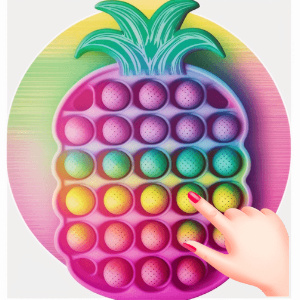

When she was five, she started playing the game with other kids at the home of a chess teacher, and showed enough talent that her parents enrolled her a year early in the local school, which had a chess program.

As a child, she spotted a chess set in a shopwindow, and liked the shapes of the pieces: the sturdy pawns and slender-necked bishops, the castellated rooks and horse-headed knights. Hou was born in 1994 in Xinghua, a small city near China’s coast. For years, she has been the only one who stood a chance. “You cannot deny it, you cannot pretend it doesn’t happen,” she told me, of the absence of women from chess’s highest echelon. Still, this appears to be an incomplete explanation of the disparity at the top of the game, about which Hou is blunt. As a purely statistical matter, you would expect few, if any, women at the extremes of the rankings. Much of this gap stems from how many women compete, versus the number of men who do: around sixteen per cent of tournament players identify as female, and most of them are children. Still, of the seventeen hundred and thirty-two Grandmasters in the world, just thirty-eight are women. Men and women face one another on equal terms, and no one can tell the gender of a player from the moves on a scorecard. The second-ranked woman, Aleksandra Goryachkina, a Russian in her early twenties, is outside the top two hundred.Ĭhess is not like basketball or soccer. She is the only woman among the hundred best chess players in the world, at No. She speaks English quickly and precisely she spent a year at Oxford as a Rhodes Scholar, studying public policy. “Teachers never shaped my views in that way.” These days, her hair falls to her shoulders, and black cat’s-eye glasses frame her face.
Yip happy glass game online full#
(Last year, at twenty-six, she became the youngest full professor in the university’s history.) “My parents never taught me that as a girl you should do this or that,” she said. “I never felt restrictions or limitations,” she told me recently, from her home in Shenzhen, China, where she is a professor at Shenzhen University’s Faculty of Physical Education. Thirteen years after she became a Grandmaster, at the age of fourteen, people still mention the two big barrettes that used to pin back her bobbed hair.

It wasn’t so much the way she played the game-dynamically but not dazzlingly, with an aggressive but flexible style. Starting as a need to understand the disease, it has evolved into a powerful story about living - even as Julie puts her affairs in order and prepares to die.This content can also be viewed on the site it originates from.Įven by the standards of chess prodigies, Hou Yifan stood out.
Yip happy glass game online how to#
And it's about how to say goodbye to your children and a life you love. It's about truth and honesty, fear and pain, our dreams, our jealousies and our anger. Inspiring and instructive, delightful and shattering, this is not just a tale about cancer. With glorious humour, bracing honesty and the cleansing power of well-deployed anger, Julie has set the stage for her final legacy: the story of her life. Motherhood, marriage, ambition, love, wanderlust, tennis, grief, jealousy, anger, comfort, pain, disease - this is a book about a life lived well and cut cruelly short. The Unwinding of the Miracle is the story of a vigorous life refracted through the prism of imminent death. Then, at the age of thirty-seven, with two little girls still at home, Julie was diagnosed with terminal metastatic colon cancer, and a different journey began. Against all odds, she became a Harvard-educated lawyer, with a husband, a family, a life. Loaded into a rickety boat with three hundred other refugees, Julie made it to Hong Kong and, ultimately, America, where a surgeon gave her partial sight. Born blind in Vietnam, Julie Yip-Williams narrowly escaped euthanasia planned by her grandmother, only to have to flee the political upheaval of the late 1970s with her family.


 0 kommentar(er)
0 kommentar(er)
